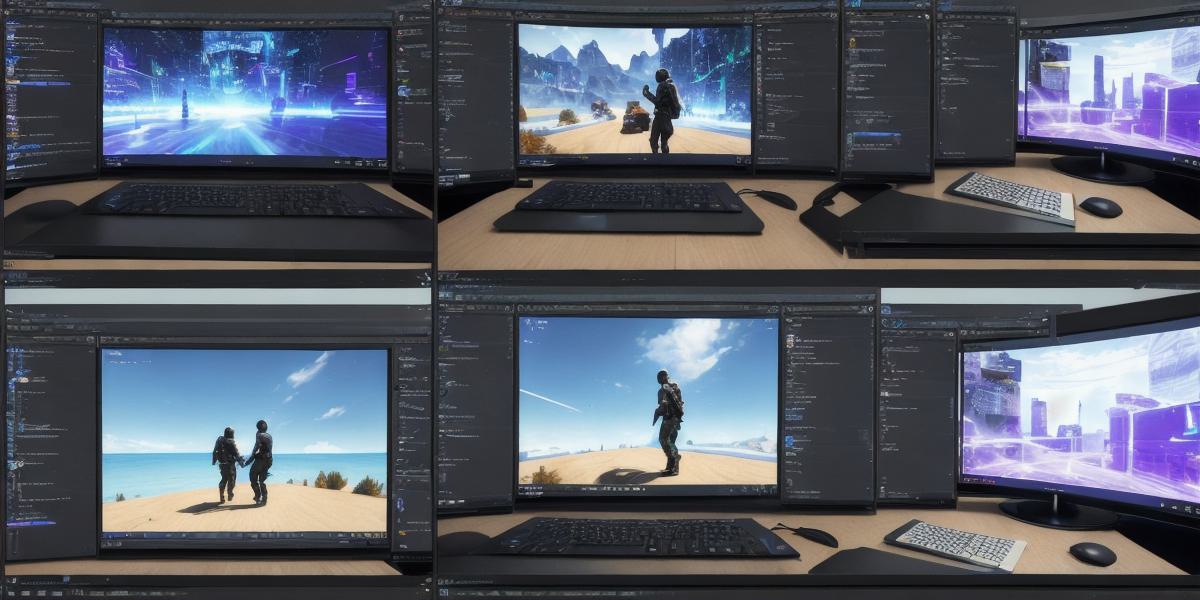As a web developer with an interest in game development, you might be wondering which toolset to choose between Unity and Visual Studio Code (VSCode) for your next project. Both platforms offer unique features and advantages that cater to different development styles and project needs. In this analysis, we will explore the differences between Unity development and using VSCode for game development.
1. Overview of Unity
Unity is a cross-platform game engine developed by Unity Technologies. It provides a comprehensive suite of tools that enables developers to create 2D and 3D games, simulations, and interactive experiences. Unity’s primary strength lies in its ease of use, powerful built-in features, and extensive community support.

2. Overview of Visual Studio Code for Game Development
VSCode is a popular open-source source code editor developed by Microsoft. While it doesn’t offer the same level of game development functionality as Unity, VSCode can be used in conjunction with various game engines and libraries to build games using C or other programming languages. Its flexibility, powerful features, and extensive extension library make it an attractive choice for some game developers.
3. Development Environment and Workflow

Unity offers a complete development environment that includes a built-in editor, asset store, physics engine, animation tools, and more. This integrated approach saves time by having all the essential components in one place. In contrast, with VSCode, you will need to set up your project using a game engine or library, such as Unity3D or MonoGame.
4. Programming and Scripting
Unity uses its own scripting language, UnityScript (similar to JavaScript) and C for scripting. Visual Studio Code, on the other hand, provides support for various programming languages like C, Java, Python, and more. This flexibility in VSCode makes it easier to work with pre-existing codebases or libraries written in different languages.
5. Performance and Optimization
Unity comes with several built-in features that help optimize performance, such as Occlusion Culling, LOD (Level of Detail) systems, and Physics optimization. However, when using VSCode for game development, you’ll need to rely on external libraries or extensions to ensure your game runs smoothly.
6. Community Support and Learning Resources
Unity has a vast community of developers, which translates into an extensive library of learning resources, tutorials, and pre-built assets available through the Unity Asset Store. Visual Studio Code’s popularity among web developers means that you’ll have access to numerous extensions and resources specifically designed for web development.
7. Cost and Accessibility
Unity offers a free version (Unity Personal) for individual developers, hobbyists, and small teams. However, it comes with some limitations on project complexity and revenue. Visual Studio Code is entirely free, making it an attractive choice for those looking to minimize upfront costs or test their game development skills without the commitment of a more expensive platform like Unity.
8. Conclusion
Both Unity and Visual Studio Code offer unique advantages for game development projects. Unity provides a comprehensive all-in-one solution with built-in features, while VSCode offers flexibility in programming languages and extensions. The choice between the two ultimately depends on your project’s complexity, budget, and development preferences.
If you’re just starting out or looking to experiment with game development, Visual Studio Code might be a more accessible and cost-effective option. However, if you’re planning a larger-scale project or require advanced game development features, Unity could be the better choice. Regardless of which platform you choose, remember that both tools offer powerful capabilities that can help bring your game development dreams to life.
